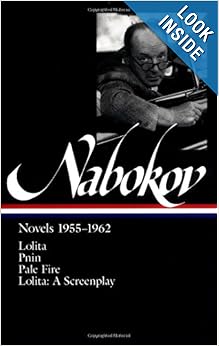 Further to “Novelist Nabokov’s butterfly evolution thesis vindicated 34 years after his death” and to the fact that Vladimir Nabokov (1899–1977) was not a follower of Darwin, his views on protective coloration were also just not Darwinian. What’s all the more interesting is that the author of the linked paper, “Nabokov, Teleology, and Insect Mimicry,” Victoria N. Alexander does—as will be apparent to readers—her best to minimize any suggestion that Nabokov was not a true believer, perhaps hoping thereby to spare him contumely:
Further to “Novelist Nabokov’s butterfly evolution thesis vindicated 34 years after his death” and to the fact that Vladimir Nabokov (1899–1977) was not a follower of Darwin, his views on protective coloration were also just not Darwinian. What’s all the more interesting is that the author of the linked paper, “Nabokov, Teleology, and Insect Mimicry,” Victoria N. Alexander does—as will be apparent to readers—her best to minimize any suggestion that Nabokov was not a true believer, perhaps hoping thereby to spare him contumely:
The key point that Nabokov makes about the dead-leaf “mimic” is that it was not produced gradually by natural selection. It might have appeared suddenly, in a developmental response to heat shock, for example, and only later, if ever, realized an advantage by fooling predators. Structural and neutral evolutionary theories do not deny that Darwinian evolutionary mechanisms exist. They supplement Darwinism by explaining the mechanisms, which either limit diversity or enable diversity, and which increase the probability that a structure may be found, that is coincidentally close enough to a form with potentially higher (or at least different) fitness, and then eventually proliferate in a population. …
The more we study Nabokov’s lepidoptery writings, the clearer it becomes that his arguments against Darwin in regards to mimicry were not conservative, as for example Gould suggests, but innovative. In fact, Nabokov was not against Darwinism properly understood. He simply had something more radical to add.
…
Among Nabokov’s readers it is well-known that he intended to write a booklength study of insect mimicry that would offer an addendum or correction to the theories of evolution that were current in the 1940s. Although he never attempted that book, hints of it appear in Ada, or Adore, “Father’s Butterflies,” The Gift, Pale Fire, and Speak, Memory. And although Nabokov never wrote specifically about mimicry to the extent that he wished, the teleomechanistic bent that pervades all of his lepidoptery is evidence enough of his argument against an exclusively Darwinian evolutionary program.
So … is he only against Darwinism improperly understood? But now it turns out he is only against an exclusively Darwinian evolutionary program (the one taught in schools)?
A similar bent also infuses his literary work and further elucidates his theory of intentionality. Nabokov’s two worlds of art and science were very interactive. As a writer, he knew that coincidental patterns often form unintentionally in narratives. He also knew that they could appear intentional/functional if they could be interpreted as such. He supposed that a similar situation could occur in nature.
Of course, what a skilled writer does is entirely a coincidence, not a matter of unconscious design. Right?
When Nabokov writes that he “discovered in nature the non-utilitarian delights that [he] sought in art,” he is referring to beauty created accidentally and spontaneously, not to beauty created by a supernatural artist with a predetermined plan. Although some commentators have supposed Nabokov’s argument against Darwinism indicated a belief in creationism, this is inconsistent with Nabokov’s aesthetics, as well as the fact that he frequently expressed a lack of interest in religion. Moreover, Nabokov’s choice of the term “agent X” for a teleological force indicates a departure from the then-popular notion of teleology, namely that of the 19th century philosopher Herbert Spencer, whose pernicious interpretations of Darwin tried to justify what have come to be known as social Darwinism. According to that argument, natural selection becomes a substitution for a supernatural purposeful creator, and evolution progresses inevitably toward more perfect forms, superior races eliminating inferior ones in accordance with the laws of nature. Nabokov reacted against this idea. He clearly felt that it is often the merely lucky, not necessarily the best strategists, who survive.
So Nabokov felt that there was a teleological force which he called “agent X”?
So, despite all Ms. Alexander’s reassurances, shake the text and agent X comes tumbling out. The story would be better organized if that agent’s imputed role in Nabokov’s theories could be discussed in a more straightforward way.
And, while we are here anyway, Darwin’s friend Spencer’s “social Darwinism” was a reasonable and common outcome of the embrace of Darwin’s theory, one that only came to be seen as “pernicious” later, when it resulted in the eugenics movement. Spencer even coined the term “survival of the fittest, ” which Darwin found to be a useful synonym for “natural selection.”
More about the “mysterious and undefinable force” agent X.
Question: Are any biologists who are exclusive products of the Darwin industry worth listening to? At all?
Follow UD News at Twitter!